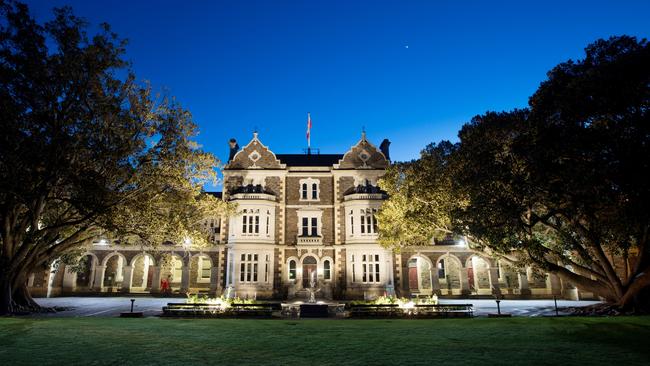PAC says boys are being left behind as SACE favours the girls
The SACE is biased against boys and must be reformed so young men aren’t left behind according to new research which reveals the huge gap between the genders.

The SACE is biased against boys and must be reformed to produce more even results, says an elite private school that commissioned research showing the huge gap between the genders.
Prince Alfred College says the focus on large numbers of assignments, many of them long essays, favours the strengths of girls, while the decreasing emphasis on exams also disadvantages boys.
Principal Bradley Fenner says boys are being left behind.
“We do not believe boys are fundamentally less intelligent than girls and measures need to be taken to address this (inequity),” he said.

“We believe there are aspects of the SACE that place boys at a disadvantage and that this has been allowed to continue for too long.
“This is not about our students, but rather about the plight of boys across the state. We feel an obligation to advocate for all boys, across independent, government, single sex and coeducational schools.”
The Adelaide University research by Dr Brendan Bentley shows not only that girls outperform boys, but that the gap is widening. It found:
IN 2017, the proportion of grades awarded to girls that were ‘As’ was more than 50 per cent higher than for boys for full-year subjects.
GROWTH rate in ‘A’ grades for girls across all subjects between 2012 and 2017 was nearly double that for boys, and more than double in maths subjects.
BOYS were more than twice as likely to score ‘D’ and ‘E’ grades in 2017, and 50 per cent more likely to get ‘C’s than girls - all proportionally worse results for boys than five years earlier, despite fewer girls and boys recording low grades overall.
A LONGER term comparison shows girls were almost 40 per cent more likely to score ‘A’s in maths than boys in 2017, versus about 20 per cent more likely back in 1996.
BOYS narrowed the gap in English over that longer period, yet girls were still 50 per cent more likely to score an ‘A’ in 2017.

Prince Alfred College also says the average ATAR girls achieve has consistently been about five points higher than boys in recent years, around 74 versus 69.
Mr Fenner said an “endless succession” of extended written assignments, even in science subjects, “isn’t helping the boys”.
He said the ATAR difference limited boys’ university options. Other education systems including the UK produced more even results by putting a heavier weighting on exams, though “we’re not saying that’s the whole answer”.
“We think this is an area where there needs to be more research done,” he said.
SACE Board chief executive Martin Westwell said girls generally outperformed boys around the world, with girls studying more productively and achieving “mastery” of subjects, while boys excelled at “cramming for exams”, especially if they required a lot of memorisation.
Mr Westwell said a range of assessment types were needed to form a “balanced judgment” of each student, and ensure they had the skills needed for post-school life, and “we think we’ve got that balance about right”.
He said at a school in Malaysia, where some students do the SACE and others do the more exam-focused UK A-Levels system, the SACE students felt they were much better prepared for university.
The Sunday Mail approached several other boys’ schools.
Blackfriars Priory School principal Simon Cobiac said no assessment system was perfect but he was “quite comfortable with the current SACE”.
Mr Cobiac said a range of factors were likely to be behind the gender gap, including girls maturing earlier, and boys’ schools were well placed to teach to the learning styles of boys and ensure they mastered the skills required by the SACE.
He noted only a minority of university courses demanded very high ATARs, most were “very accessible”, and boys were not really disadvantaged if they were getting into their preferred courses.
Rostrevor College principal Brian Schumacher said in a statement: “It is vital that our practice in schools continues to be shaped by high quality educational research including studies into the impact of gender on learning and assessment performance.”
St Peter’s College did not respond and Christian Brothers College declined to comment.
